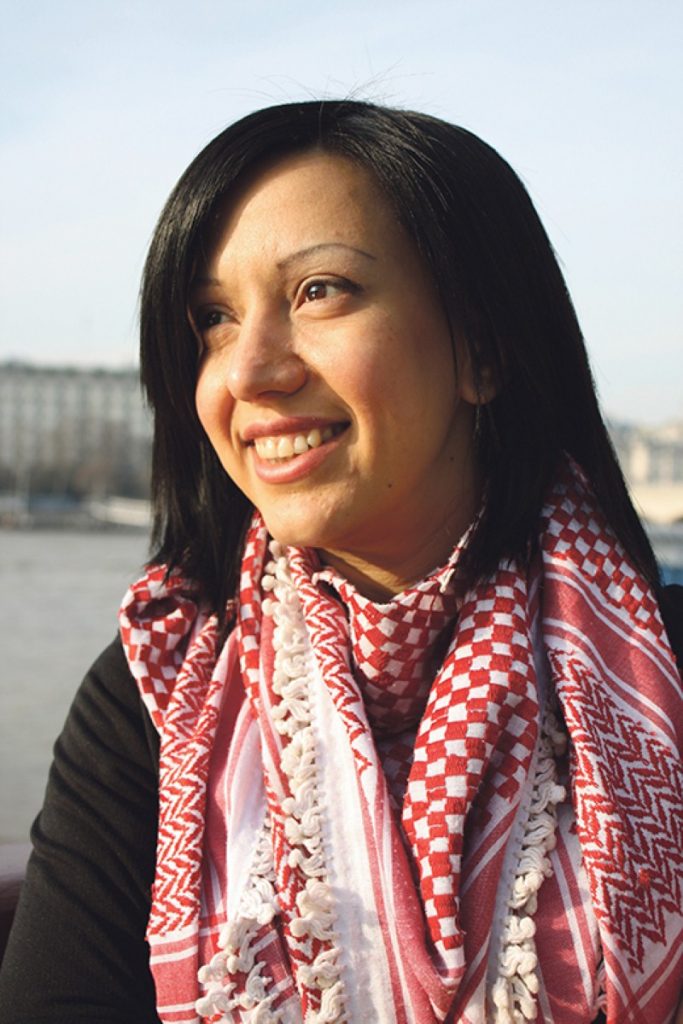Comment: Alicia Keys’ Tel Aviv gig shows her progressive politics are just skin deep
Alicia Keys is due to perform in Tel Aviv, Israel, tonight. As American R&B singer-songwriter, numerous activists and prominent fellow artists have appealed to her conscience, asking her to heed the Palestinian call for a boycott that is part of the BDS (Boycott, Divestment, and Sanctions) campaign.
BDS is a growing campaign to isolate Israel and compel it to respect international law and the human rights of Palestinians, mirroring the model that was successfully utilised against South African apartheid.
The BDS campaign achieved a new level of prominence last month, when Steven Hawking announced the cancellation of his participation in the Presidential Conference in Israel on the advice of his Palestinian academic peers. Numerous distinguished cultural figures and public intellectuals have joined the call for BDS including John Berger, Arundhati Roy, Mike Leigh and Naomi Klein. The successes and strategies of the BDS movement have been captured recently in a new collected volume entitled Generation Palestine: Voices from the Boycott, Divestment and Sanctions Movement. Contributors include the late Iain Banks and filmmaker Ken Loach, with a forward by Archbishop Desmond Tutu, alongside other internationally acclaimed artists, writers, academics and grassroots activists.
Both celebrated author Alice Walker and Pink Floyd musician Roger Waters wrote moving open letters urging Alicia Keys to rethink her appearance in Israel. "We must stand united with all our brothers and sisters against racism, colonialism, segregation and apartheid," wrote Waters. "Please, Alicia, do not lend your name to give legitimacy to the Israeli government policies of illegal, apartheid, occupation of the homelands of the indigenous people of Palestine."


Evoking a sense of shared history and Key’s artistic heritage, Alice Walker wrote: "You were not born when we, your elders who love you, boycotted institutions in the US South to end an American apartheid less lethal than Israel's against the Palestinian people…We changed our country fundamentally, and the various boycotts of Israeli institutions and products will do the same there." Prominent African American civil rights activists drafted a letter to Keys "affirming the Jim Crow analogy in Palestine/Israel", explaining: "We stand against bigotry and racism in all their forms, and wish to express that the treatment Palestinians face shares much in common with what African Americans experienced under Jim Crow segregation in the USA."
Defense for Children International Palestine, also wrote to Keys because of her outspoken advocacy on child rights, urging her to show commitment to her own non-profit 'Keep A Child Alive' motto and cancel her concert due to Israel's abuses of Palestinian children's rights. French human rights advocates held protests at Keys' concerts in Lyon, Marseille and Paris and more than 50 US organisations working with the US Campaign to End the Israeli Occupation sent Keys' publicist and 'Keep a Child Alive' a letter asking her to cancel her July 4th show in Tel Aviv. Their letter called on Keys to "join us now in the cultural boycott of Israel, and help stop entertaining apartheid".
A popular YouTube video set to the tune of Keys song 'This Girl is of Fire' depicted Palestinian women protesting the Israeli ministry. The video had been featured on MSNBC's Grio, the Atlanta Black Star, and many other websites before Youtube removed it to comply with Key’s complaint for copyright infringement. Dozens of people recorded video messages for Keys asking her to join the boycott.
Keys has not answered any of the letters addressed to her. The sole signs of her awareness of the campaign have been a terse statement that "music is a universal language" and her legal action on the YouTube parody of her song. As should be obvious, not all artists can be swayed to act in solidarity with the struggle against apartheid.
Nevertheless, this burgeoning campaign has been an amazing experience and success. Through appealing to one musician, an ever increasing number of artists, fans, and spectators have learned about the struggle against apartheid as well as about how they themselves can take action, by speaking out, by boycotting, by asking others to boycott, etc.
Beyond appealing to boycott, BDS reminds artists and spectators alike that culture is also political, and commercial and personal choices can have inescapable implication on faraway lives. While artists have the right to their own decisions, which ought to be respected even by those who disagree with them, fans have the right to know when their preferred artists’ progressive politics are real and when they are mere marketing. Artists who wish to portray themselves as socially and politically conscious risk the coherence of their image when they respond with silence and legal sophistry to appeals to their conscience.
Rafeef Ziadah is Senior Campaigns Officer at War on Want. She is one of the contributors to 'Generation Palestine: Voices from the Boycott, Divestment and Sanctions Movement' and will be joining editor Rich Wiles at book launch events in Sheffield, London and Manchester 3-5 July.
The opinions in politics.co.uk's Comment and Analysis section are those of the author and are no reflection of the views of the website or its owners.

